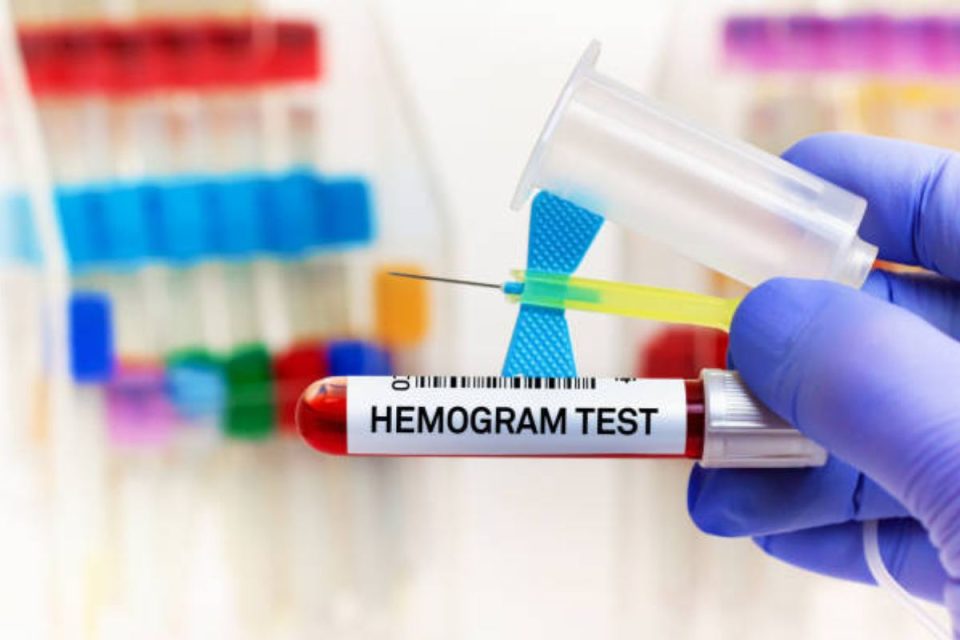When humans start to age, we also face deterioration in our bodies, which invites or increases the chances of illness or diseases. However, everyone’s body varies from others, and following healthy lifestyle choices can do so much good for your health, especially for elder people.
Nowadays, the only secret to living a long healthy life is to take proper health care on time, which can be done through regular health checkups. And if you have old parents or grandparents at home, the best you can do for them is to take care of them by taking them for regular checkups. Since they are aging, they slowly become weak. You need to keep a record of their health and take necessary precautions when required to avoid further illness.
For regular checkups, a Hemogram test (HMG) is the best option to monitor elderly health. As it can find out the reason behind some illnesses or diseases. Moreover, it becomes helpful for doctors to find the reason for the elderly patient and prescribe medication accordingly. In this post, you will be able to learn about the Hemogram test in detail.
Table of Contents
What is a Hemogram test?
A Hemogram test is also commonly known as a complete Hemogram test or blood count. The Hemogram test is considered a group test primarily initiated on a sample set of the individual’s blood. The test process involves a broad blood screening to determine any signs of infection or diseases in the patient’s body.
This Hemogram test is advantageous for both patient and doctor because it detects even the slightest of abnormalities and gives important information about the signs of an illness or provides reasons for the illness caused.
Hemogram tests or complete blood count involves 3 essential elements of blood which are:
- Red Blood Cells (RBCs)
- White Blood Cells (WBCs)
- Platelets.
Various types of tests are initiated with the 3 blood categories mentioned above:
- Haemoglobin (HGB)
- Mean cell volume (MCV)
- Mean cell haemoglobin (MCH)
- Platelet Crit (PCT)
- Total count of RBC, WBC, and platelets
- RBC Distribution Width-Standard Deviation (RDW-SD)
- RBC Distribution Width-Coefficient of Variation (RDW-CV)
- Absolute and differential count of Neutrophils, Lymphocytes, Monocytes, Eosinophils & Basophils
- Erythrocyte Sedimentation Rate (ESR)
- Peripheral Smear Examination
- Platelet Distribution Width (PDW)
- Packed Cell Volume (PCV) OR Haematocrit (HCT)
Hemogram test Normal Values
As mentioned above, the hemogram test includes a wide variety of tests. These tests have different normal values by which the condition of the patients is measured. If the test reports come under normal values, the individual is healthy. However, if the test reports are the opposite, a doctor’s consultation is required to get proper medication.
- The normal values for the Hb test are 14–17.5 g/dL for males and 12.3–15.3 g/dL for females.
- The normal values for RBC count are 4.5–5.9 x 106 for males and 4.5–5.1 x 106 for females.
- The normal values for TLC for all are 4.5-11.0 x 109 /L
- RBC Distribution Width-Standard Deviation (RDW-SD) is 39–46 fL
- RBC Distribution Width-Coefficient of Variation (RDW-CV) is 11.6%–15%
- Neutrophils: 56%
- Eosinophils: 2.7%
- Lymphocytes: 34%
- Monocytes: 4%
- Platelet Distribution Width (PDW): 8.3–25.0 fL
- Mean Platelet Volume (MPV): 8.6–15.5 fL
- Platelet Large Cell Ratio (P-LCR): 11.9%–66.9%
- Platelet Crit (PCT): 15%–.62%
- Erythrocyte Sedimentation Rate (ESR): 0–20 mm/hr
- MCV is 80–96 µm
- Mean Corpuscular Hemoglobin (MCH): 27.5–33.2 pg
- Mean Corpuscular Hemoglobin Concentration (MCHC): 32%–36%
- Packed Cell Volume (PCV): 36%–47%
- Platelet count: 150–450 x 103 /µl
- (RDW-SD): 39–46 fL
- (RDW-CV): 11.6%–15%
- The absolute neutrophils, lymphocytes, monocytes, basophils, and eosinophils counts are 1800–7800 /µl, 1000–4800 /µl, 0–800 /µl, 0–200 /µl, and 0–450 /µl respectively.
What is the Purpose of a Hemogram test?
A Hemogram test is considerably done to identify the illnesses or diseases in the body. The purpose of doing a hemogram test is to complete a checkup of an elderly person to examine if they are suffering from any illness or disease. This test is advantageous for both patients and doctors as through this test, even the slightest abnormalities in the bloodstream can be found.
The following are the health issues or diseases that a complete hemogram test can detect:
- Bleeding disorders
- Inflammation
- Infection in blood
- Cancer
- Dehydration
- Heart issues
- Anaemia or low hemoglobin
- Issues in bone marrow
- Autoimmune disorders, and many more.
Final Overview – Preparing for a Hemogram test
There is no specific preparation for a Hemogram test. But keeping a few things can help the test process to go smoothly and pressure-free.
- Before the test, drink sufficient water, and stay hydrated to have a healthy blood flow.
- Ensure your blood sugar levels are controlled; otherwise, you may feel a bit dizzy after taking the blood sample.
- Ask the technician to elaborate on the hemogram test process.
Be sure to seek direct assistance from experts to learn more about this topic.

